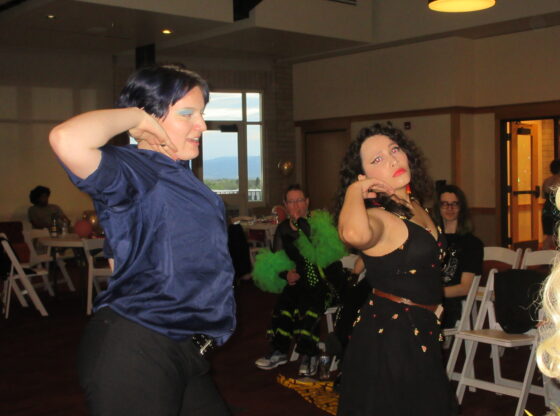Pi Lambda Chi hosted their annual “My Culture Is Not A Costume” fashion show this past Friday, featuring modeling and other performances to teach the DU community at large to appreciate cultures, rather than appropriate them. All proceeds of the event went to Pi Lambda Chi’s philanthropy, Starfish Inc., an organization that helps middle school and high school girls in Guatemala pursue their education.
The Towers Ballroom was transformed into a “red carpet” runway, complete with string lights, balloons and streamers, for each model to display an example of their culture’s attire. They succeeded in representing a great number of countries (and cultures) in the show: Kenya, Somalia, DRC, China, Vietnam, Colombia, Mexico, Polynesia (Hawaii and Tahiti), Guatemala, Brazil and Morocco. Even their food selections were diverse; they had Colombian milhojas, Mexican sopapillas, Chinese mooncakes and more, all helping to make a culturally immersive night.
Each model walked in the outfit of their choice. Some were more traditional, such as Winnie Nguyen wearing a Vietnamese Áo dài, which she explained are most commonly worn by women, for everyday activities like school and for special occasions like weddings. Fartun Sherif, representing both Kenya and Somalia, chose a primarily Somalian dress that’s worn exclusively for special events. There were also more modern takes, such as Katherine Zapata wearing a Colombian national football team jersey and holding the country’s flag (while walking to “Hips Don’t Lie” by Shakira, I might add).
There were also quite a few performances from the models; Vanessa Santiago represented various aspects of Polynesian culture by performing a Hawaiian Hula and a Tahitian dance, which are often confused with one another.
Lumiere Sidonie recited her original poem “The Fabric of My Identity” while wearing a Congolese Kitambala, a head wrap that women usually wear for special occasions as part of a matching ensemble; in her poem she spoke of the empowerment she finds in her Congolese culture, which she refuses to relinquish in the face of adversity: “My culture is a raging fire that words or appropriation cannot quench.”
The biggest performance of the night was the Matachines dance group, who brought the house down by performing a northern Mexican (also found anywhere from Peru to New Mexico) traditional soldier-and-warrior-like dance to a fiddle and thunderous drumming. Donned in elaborate and brightly colored garb, they captivated the whole room, performing the highly complex dance as though it was second nature to them. They left everyone in awe of their dedication and passion, exemplifying exactly what it means to appreciate a culture in all of its beauty.











